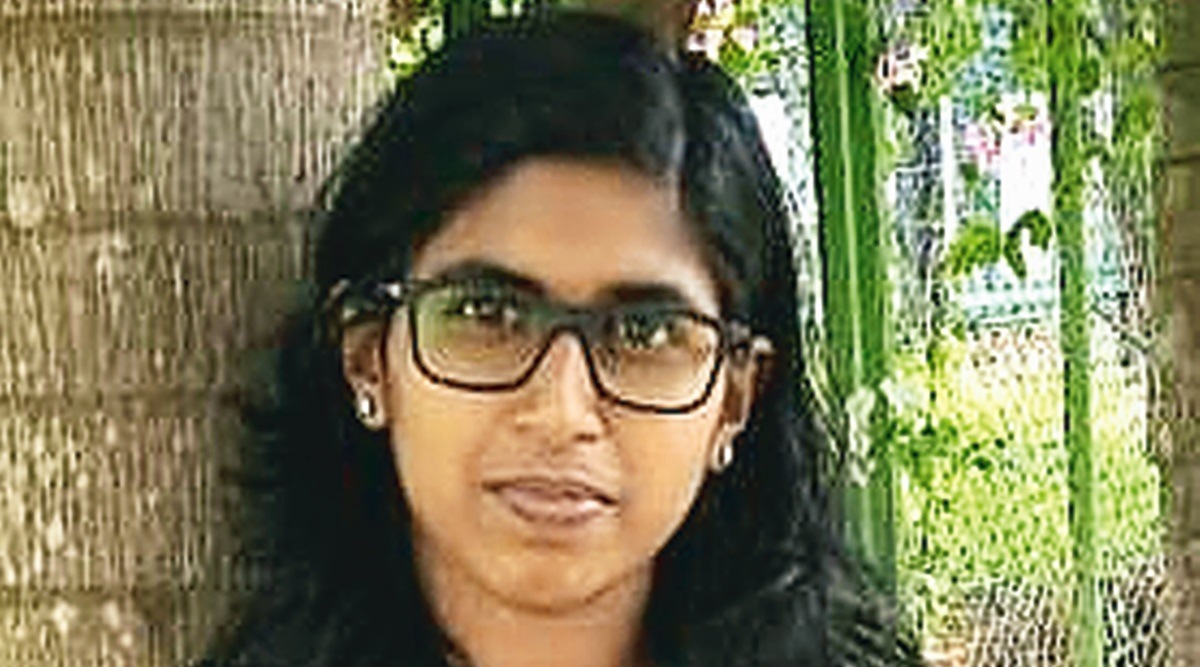April 12, 2021 4:22:47 am
 Aswathy is now a first-year MBBS student.
Aswathy is now a first-year MBBS student. SHE WAS born with Spastic Cerebral Palsy, a disorder caused by brain damage. Fifty-two days after her birth, she lost her mother. And with her father, a daily wage labourer in Kerala’s Malappuram, struggling to make both ends meets, life didn’t leave Aswathy P with much of a choice — except to fight back.
In 2020, she secured rank 3,44,859 in the National Eligibility-cum-Entrance Test (NEET) but was denied admission to the state-run medical college in Manjeri under a special quota since her right arm “is involved in her disability” making her ineligible for medical courses.
The 20-year-old didn’t give up. She took her case to the Kerala High Court, which ruled in her favour. It got a separate medical examination conducted and said: She “is a person who can climb stairs with railing, though she has only minimum ability to run or jump and she has difficulty in moving with uneven surfaces. She is also a person who is able to handle most objects with somewhat reduced quality and/or speed of achievement.”
Today, Aswathy is a first-year MBBS student in Manjeri college, thanks to an interim order by the High Court on December 7, 2020, which was made absolute on January 25 this year following the medical examination. “Classes began on February 8,” she says.
But the next challenge looms. The National Medical Commission (NMC) has approached the Supreme Court against the High Court order stating that the “legal issues involved…is of general and public importance, and will have an impact in a large number of cases every academic year throughout the country”.
Aswathy says she will fight this, too. “I have been nurturing a dream since childhood of becoming a doctor. I started regular schooling from Class 3 at the age of 10…treatment consumed much of my childhood. But the several years I spent in hospital made me emotionally attached to the medical world. What will anyone gain by spoiling my dream and playing with my life?” she asks.
“All the way in my life, I have been fighting for justice. The medical boards always discouraged me. But I am going ahead only because of my determination. On every occasion in life, I have had to prove before others that I can study,’’ she says.
According to Medical Council of India Regulations on Graduate Medical Education 1997, five per cent seats of the annual sanctioned intake capacity in government and government-aided institutions shall be filled by candidates with not less than 40 per cent of a specified disability under the Rights of Persons with Disabilities Act 2016, based on NEET rank.
For Cerebral Palsy, the Act provides admission if the disability is not more than 80 per cent. And initially, Aswathy was provisionally allotted a seat at the Manjeri college in the second round of allotment in the all-India quota. She also had a certificate from a designated centre, stating that she is suffering from Spastic Cerebral Palsy Triplegia (spastic movements in three limbs) and that her disability is 63.3 per cent.
But then, she was denied admission because the certificate also stated that her right upper limb “is involved in her disability”.
Arguing for Aswathy in the High Court, Senior Advocate Kaleeswaram Raj pointed out that she is eligible for admission as her disability is well below the 80 per cent cut-off.
Following its interim ruling in Aswathy’s favour, the High Court ordered a medical examination to know “as to whether” her “disability of Triplegia is independent of cerebral palsy” or “is it one that has occurred as a consequence of cerebral palsy”.
The NMC had contended in the High Court that persons suffering from Triplegia are eligible for admission only if both their hands are intact with sensation, strength and range of motion.
Rejecting the Commission’s stand, Justice P B Suresh Kumar referred to the disability certificate issued after the medical examination directed by the court and said the “condition of the petitioner cannot be regarded as an independent disability”.
Justice Kumar said that “like any other citizen, persons with disability have also the right to get not only the basic education but also higher education”.
To a specific query from the High Court on “the basis for insisting that the hands of the candidates shall be intact with intact sensations, sufficient strength and range of motion”, the counsel for NMC replied that it “is necessary for a person to perform the duties of a doctor”.
But the High Court ruled: “…true, the doctors need to physically examine the patients, but all candidates pursuing medical courses are not becoming practising doctors. There are several other avenues also for candidates who are pursuing medical courses such as teaching, research etc., other than practising in surgical and clinical faculties which persons who do not have even the upper limbs are successfully doing.”
It also said: “…it cannot be said that a person who is not able to physically examine a patient cannot be a doctor, for having regard to the technological advancements achieved in the field of medicine especially during the last couple of decades, there would be umpteen replacements for physical examination in the years to come.”
Says Aswathy: “At the medical college, teachers and classmates are backing me. They have even offered me an automatic wheelchair.”
- The Indian Express website has been rated GREEN for its credibility and trustworthiness by Newsguard, a global service that rates news sources for their journalistic standards.

